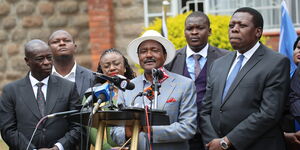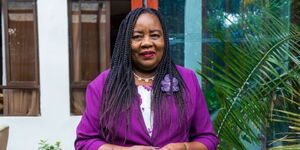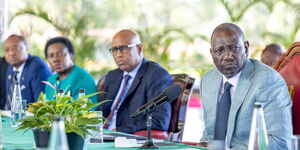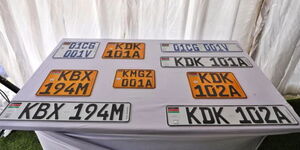Kenya is intensifying efforts to accelerate its Affordable Housing project by seeking collaboration with South Korean firms. President William Ruto’s administration is keen to harness Korea's advanced technologies to bolster housing infrastructure across the nation.
Charles Hinga, the Principal Secretary for Housing and Urban Development, disclosed the strategy to The Korea Herald on September 10. He emphasised that Kenya is keen on inviting South Korean companies to invest in and deploy their advanced technologies in Kenya’s housing sector.
Why it matters: Kenya has a huge deficit in housing, which has led to a majority of Kenyans living in substandard houses. According to the World Bank, the production of housing units is currently at less than 50,000 units annually, well below the target number, culminating in a housing deficit of over 2 million units, with nearly 61 per cent of urban households living in slums.
Dig dipper: The move comes as Kenya aims to leverage Korean innovations such as aluminium formwork to enhance construction efficiency.
Hinga’s vision includes implementing standardised housing designs to streamline the Affordable Housing project. This includes Block A for social and affordable housing, Block B for affordable and market-rate units, and a mixed-use development (MUD) that would accommodate up to 10,000 residents along with essential facilities like schools and hospitals.
"We have the funds and are actively seeking Korean builders to help us realise these ambitious housing projects," Hinga revealed. He highlighted Kenya’s robust financial backing, including a housing levy introduced in 2023, which currently collects Ksh60 million monthly. The government’s goal is to ramp this up to Ksh75 million a month.
Hinga pointed to the importance of local production and employment generation. "Ultimately, we want these companies to establish production facilities in Kenya," he added. The government’s aim is to construct 200,000 housing units annually, with over 100,000 units already initiated since July 2023.
A prominent Korean construction company is already active in Kenya, and Hinga noted the growing demand for high-quality aluminium formwork from Korea. This highlights a significant need for superior construction materials in Kenya’s burgeoning housing sector.
During his recent visit to South Korea for the World Smart City Expo from September 3 to 5, Hinga expressed admiration for Korea's efficient smart systems and their capacity to provide decent housing within a limited land area. He also reflected on Kenya’s historical challenges with public housing investments, which were curtailed following structural adjustments mandated by the World Bank and IMF in the late 1980s.
The Kenyan government is tackling the housing crisis in Nairobi, where soaring land costs and low wages, compounded by inadequate public transport, force many into informal settlements. To mitigate construction costs—currently accounting for 45 percent of development expenses—the government has introduced VAT exemptions on input materials and a 2023 housing levy. This levy involves a 1.5 percent contribution from both employers and employees.
Hinga also highlighted that Kenya has over 800 government-owned land parcels across all 47 counties. The government is offering incentives such as tax holidays and affordable power to attract South Korean investors.
"Our long-term objective is to build one million houses over the next five years," Hinga asserted. He urged Korean companies to seize the opportunity presented by Kenya’s growing demand for construction technologies and labour.












